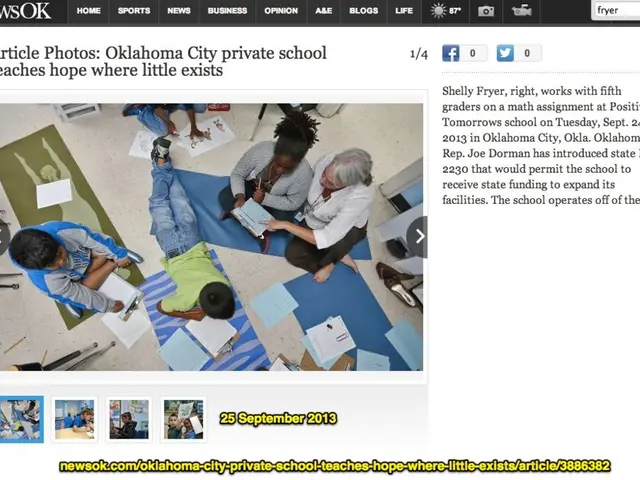After the recent changes, has the process of obtaining a U.S. visa for German students remained unaltered?
U.S. Visa Plans for Foreign Students Under Scrutiny
Berlin - The future of foreign students and exchange participants aiming to study in the United States is under review, potentially facing stricter scrutiny, as per recent media reports. The Trump administration has issued instructions to U.S. embassies and consulates worldwide to put a temporary halt on scheduling new appointments for student and exchange visitor visa applications.
Although no official announcements have been made, several sources, including CNN and Politico, report that the State Department has instructed global posts to hold off on scheduling these appointments for the time being. Existing appointments, however, are still valid. Visas in categories F, M, and J, which cater to students, exchange students, and au pairs, are affected by the potential changes. Approximately 8,000 to 9,000 German students study in the U.S. annually, according to the Federal Statistical Office.
Affected applicants currently lack clear guidance on the way forward. Upon request for information, the U.S. Embassy in Berlin did not provide specific recommendations. The German Rectors' Conference advises students to contact their university's International Office as well as their respective funding organizations for updates. The German Academic Exchange Service (DAAD) and the Federal Foreign Office are also recommended monitoring resources.
The embattled expansion of social media screening is believed to underlie the new visa plans. Previously, social media scrutiny primarily affected students already enrolled in U.S. universities who participated in pro-Palestinian protests, according to Politico. In the spring, U.S. Secretary of State Marco Rubio issued a warning to students with visas, informing them that causing unrest could lead to the revocation of their documents. Shortly before that, a Turkish doctoral student was arrested in Boston, a co-author of an article published in a student newspaper in 2024 that called for the university to recognize "genocide" allegations against Palestinians.
Moreover, the U.S. government is aiming to prevent Harvard University from enrolling international students. A court is currently handling the case, with the Trump administration emphasizing concerns related to pro-Palestinian protests at U.S. universities. Harvard, on the other hand, accuses Trump's administration of threatening the university with an illegal retaliatory measure.
The upcoming changes to visa policies could delay and complicate proceedings for prospective international students and potentially shrink enrollment at universities heavily reliant on foreign students due to financial reasons. Criticism from state officials and university representatives questions the effectiveness of the new policies and their potential impact on global academic relations.
- The stricter visa policies under review for foreign students may also be influenced by politics, as evidenced by the U.S. government's aim to prevent Harvard University from enrolling international students, a situation currently being handled by a court.
- Amidst the uncertainty regarding student visas, general news sources such as CNN and Politico have reported on the potential impact of these changes on the education-and-self-development of international students, notably the delay and complications they might face in enrolling at American universities.







